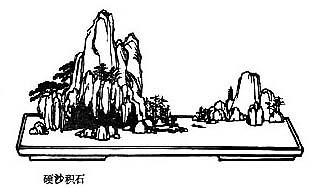孫
子
兵
法
Sun Zi 
 – L'Art de la guerre
– L'Art de la guerre
La stratégie chinoise ou comment s'informer, estimer, diviser, détourner, tromper, et vaincre « sans coup férir ». Tr. Amiot (fr) et Giles (en).
De l’affrontement direct et indirect
Sunzi VII. 6.
Veillez, lorsque vous abandonnez votre camp dans l'espoir d'un avantage probable, à ce que celui-ci soit supérieur aux approvisionnements que vous abandonnez sûrement. Si vous devez aller un peu loin, marchez jour et nuit ; faites le double du chemin ordinaire ; que l'élite de vos troupes soit à la tête ; mettez les plus faibles à la queue. Prévoyez tout, disposez tout, et fondez sur l'ennemi lorsqu'il vous croit encore à cent lieues d'éloignement : dans ce cas, je vous annonce la victoire.
Amiot
Thus, if you order your men to roll up their buff-coats, and make forced marches without halting day or night, covering double the usual distance at a stretch,1 doing a hundred li in order to wrest an advantage, the leaders of all your three divisions will fall into the hands of the enemy.
The stronger men will be in front, the jaded ones will fall behind, and on this plan only one-tenth of your army will reach its destination.2
Giles VII.7,8.

L'Art de la guerre – Sun Zi VII. 6. – Chinois on/off – Français/English
Alias Sun Tzu, Sun Wu, Sun Tse, Sunzi Bingfa, Souen Tseu, Souen Wou, 孫武.
Le Canon des Poèmes, Les Entretiens, La Grande Étude, Le Juste Milieu, Les Trois Caractères, Le Livre des Mutations, De la Voie et la Vertu, 300 poèmes Tang, L'Art de la guerre, Trente-six stratagèmes
Bienvenue, aide, notes, introduction, table.
Index – Contact – Haut de page
